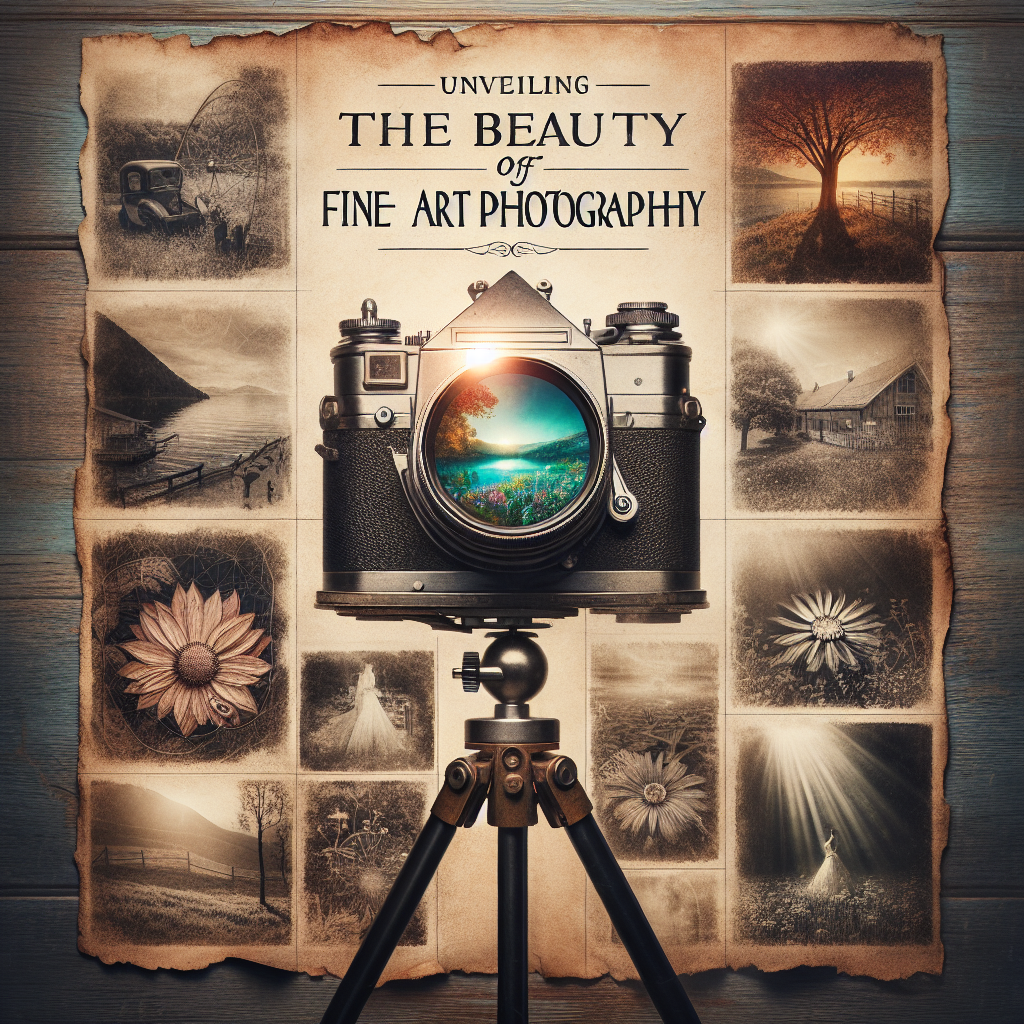Photography is an artistic medium that has been popular for centuries, ever since the first images were captured on camera. It presents a unique way to capture moments in time, allowing us to keep those memories alive. Over the years, it has evolved into various styles, including documentary, portrait, landscape, and fine art photography. Among these, fine art photography stands out for its thought-provoking and aesthetic appeal. It gives the photographer the liberty to express themselves and bring their perspective into the frame, thereby creating unique artistic visions.
Defining Fine Art Photography
Fine art photography, also known as artistic photography, involves creating images that express the artist’s creative vision. It goes beyond mere image capturing to convey a concept, a thought, or an emotion. Unlike commercial or journalistic photography that focuses on factual representation, fine art photography prioritizes creativity, imagination, and subjective interpretation. It’s about composing a photograph so artfully so that it touches the viewer at a deeply personal level.
Influence and Impact
Fine art photographers have the freedom to express their thoughts and emotions through their work, often leading to profound and passionate images. Through careful image manipulation and by using distinctive lighting or photographic techniques, they create pictures that convey dramatic messages, narrate stories, or challenge conventional beliefs. Instead of providing answers right away, fine art photographs invite the viewers to think and interpret what’s behind the image. This element of intrigue is what makes these pictures truly mesmerizing.
Methodology
Establishing a theme or concept is the first step in fine art photography. It all begins with an idea that a photographer wishes to communicate to the viewer. Whether it be the beauty of the natural world, the human condition, or some abstract concept, the subject matter can be as vast as the photographer’s imagination. The next step is to work on the composition of the photograph. The use of lighting, angles, exposure, and framing is meticulously considered to bring the vision to life. Finally, post-processing techniques are used to enhance the images and strengthen the concept.
Nurturing Talent and Creativity
Being a fine art photographer is not merely about knowing how to operate a camera or having the most expensive equipment. It is about having an artistic vision, being able to see things differently, and knowing how to communicate this vision effectively to viewers. To nurture this talent and creativity, photographers need to constantly challenge themselves, be critical of their work, and continuously seek inspiration. Through constant self-exploration and self-expression, they can create not just pictures, but works of art.
Conclusion
Unveiling the beauty of fine art photography unlocks a whole new world of artistic expression. It allows both the artist and the viewer to see the world through a different lens, revealing different layers of meaning and beauty. Fine art photography goes beyond mere image capturing. It is about creating a medium for powerful storytelling, boundless creativity, and raw, unfiltered emotion, that has the ability to touch souls and open minds.
FAQ
- What separates fine art photography from other forms of photography?
The primary difference is that fine art photography is driven by the artist’s vision and creativity, rather than merely capturing a truthful representation of a subject or a scene. - Does fine art photography require professional training?
While professional training can be beneficial, it’s not necessary. More than technical expertise, fine art photography is about having a unique perspective and expressing it effectively. - What makes a fine art photograph ‘good’?
A ‘good’ fine art photograph is subjective and varies from person to person. Generally, a fine art photograph that effectively communicates the photographer’s vision and evokes emotion in the viewer is considered ‘good’. - Can one make a living out of fine art photography?
Yes, it is possible. However, like any other artistic field, it requires building a strong portfolio, marketing one’s work effectively, and often, much perseverance. - How can I start my journey in fine art photography?
Start by learning the basics of photography and then focus on developing a unique perspective and style. Experiment, take risks, and most importantly, continuously seek inspiration.

